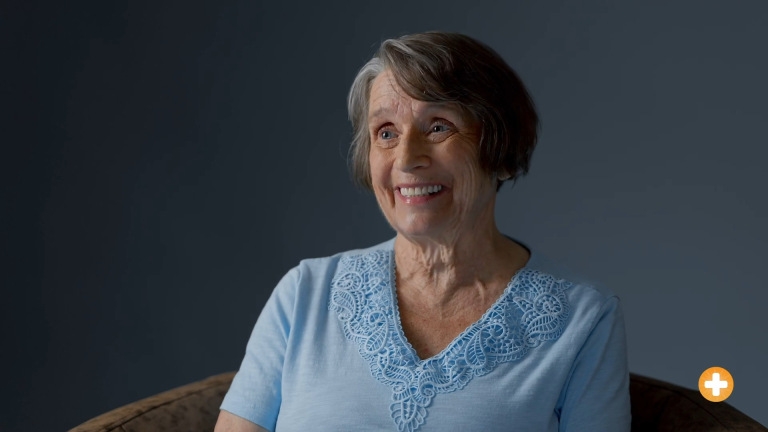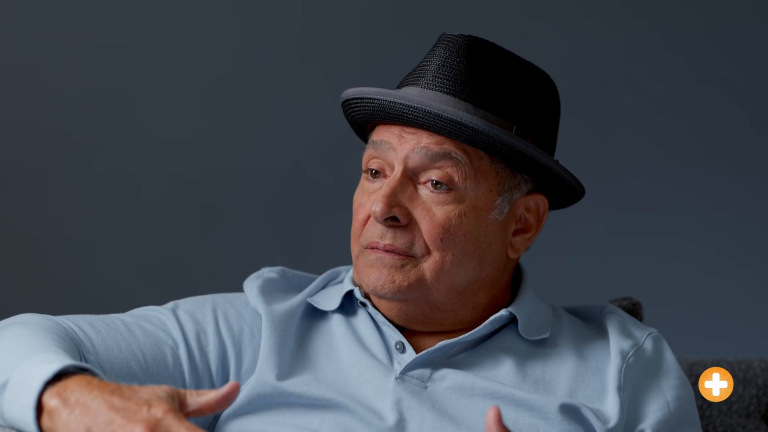Mesothelioma Survivors
Mesothelioma survivors are living longer with the cancer than ever before. Breakthroughs in traditional treatments and integrating alternative therapies have helped mesothelioma survivors live on average 12 to 21 months following a diagnosis.
Surviving Mesothelioma
A person with mesothelioma is called a survivor from the time they’re diagnosed and for the rest of their life. If you’re living with this cancer, you’re a mesothelioma survivor.
Some people live much longer than expected, even reaching mesothelioma remission. This is often achieved with the help of advanced and sometimes aggressive treatments, a strong care team, and a proactive approach to their health.
Because it’s a rare and aggressive cancer, mesothelioma survivors form a strong community of people who have faced unique challenges. There are many ways survivors, caregivers, and their families help one another. Sharing their insights and firsthand experiences in online communities such as private Facebook support groups and getting involved in awareness and advocacy efforts helps others in a similar situation.
Why Do Some Mesothelioma Patients Live Longer Than Others?
How long you may live with mesothelioma depends on where your tumors first started to develop, how far the cancer has spread, your overall health, and how well your body responds to treatment. Most long-term survivors worked with an experienced mesothelioma doctor.
Factors That May Extend Survival
- Age: A patient’s age can affect how the body handles treatment. But your overall health, treatment choices and support often matter more than age alone.
- Cell type: Epithelioid mesothelioma cells tend to respond better to treatment.
- Early stage: Those diagnosed early may be able to have aggressive tumor removing surgery because tumors haven’t spread further yet.
- Gender: Some studies have shown nearly triple the 5-year survival rate for women.
- Treatment: Choosing to get treatment can slow mesothelioma’s spread, ease symptoms and improve survival.
- Tumor location: Peritoneal mesothelioma tends to respond better to aggressive treatments and spread less aggressively than pleural mesothelioma.
Many long-term mesothelioma survivors also pursue a second opinion to ensure they receive the best treatment option. A 2023 clinical trial showed 25% of people with advanced pleural mesothelioma lived more than 3 years when treated with both immunotherapy and chemotherapy. Survival was improved for stage 4 patients as well. A recent case study featured the story of a patient who lived 11 years after diagnosis with chemo and immunotherapy.
New treatments and clinical trials are helping many patients live longer, even those with late-stage mesothelioma. New surgery methods, better drug combinations, and more targeted treatments are helping more people with mesothelioma live longer.

Connect with top mesothelioma specialists, and get help scheduling appointments.
Find a Doctor NowSupport for Mesothelioma Survivors and Their Families
Finding out that you or a loved one has mesothelioma can feel overwhelming, but you don’t have to go through it alone. There are many resources for mesothelioma caregivers and survivors. Patient Advocates, for example, are a key resource for families living with mesothelioma.
They can connect you with mesothelioma-specific support groups, financial assistance, and mesothelioma specialists with experience successfully treating survivors with similar cases. Our Patient Advocate team can also help with your claims for VA benefits, help you navigate insurance, assist with scheduling your appointments, and offer personalized support throughout your journey. Their assistance is always free.
Mesothelioma Resources and Support
- Educational resources: Information covering details about this rare cancer, treatment options, specialized cancer centers and experts to help guide you from The Mesothelioma Center at Asbestos.com can help you make empowered choices.
- Financial support: There are a variety of financial assistance options available. Patient Advocates can help you understand and navigate these options. The VA-accredited claims agents in our Veterans Department can also help you file your benefits claim.
- Firsthand experiences: The survivors we work with generously share their personal, firsthand experiences with the community in our series of Stories From Survivors. They also share tips and answer questions from fellow survivors and caregivers when hosting webinars.
- Patient advocacy: Our Patient Advocate team brings extensive and diverse experience to the support they offer mesothelioma survivors and their loved ones. With medical doctors, veterans, a registered nurse, a certified oncology patient navigator, and experts in medical and hospice outreach, this unique mesothelioma resource is here to support survivors.
- Support groups: Support groups help build an essential community and offer an opportunity to exchange ideas and information. Our online support group is open to patients and caregivers with a mental health counselor facilitating discussions.
Many resources are also available for families coping with the physical and emotional challenges of helping a loved one cope with mesothelioma. These resources include tips for emergency planning, diet and nutrition, communication strategies for speaking with specialists and avoiding caregiver burnout.
How The Mesothelioma Center Helps Patients Improve Survival
The Patient Advocates at The Mesothelioma Center help match patients with doctors and medical resources. They also offer continued free support, guiding survivors and their loved ones through the health care system. People we’ve helped have shared stories about how we’ve supported them and their families.
Mesothelioma caregiver Lee Bailes tells us, “Patient Advocate Karen Selby has been my angel. I can’t tell you how amazing she has been through every step of the way. Her knowledge has been golden for us. From connecting us with specialists to just bouncing ideas off her, I couldn’t have done this for Michael without her. We’d be lost.”

Understand your diagnosis, top doctors and ways to afford care.
Get Your Free GuideMesothelioma Survivors and Their Stories
New treatments, medical advancements, and earlier detection have helped mesothelioma survivors live longer and improve their chances of survival. Their stories show that it’s possible to keep fighting and not give up. These survivor stories offer hope and encouragement to others on the same journey.
Stories From Our Wall of Hope
Our Wall of Hope features stories mesothelioma survivors have personally shared with us. Many of these survivors share firsthand insights into their long-term survival and the challenges they overcame. Survivors share details about treatments they chose to have and the ways they’ve improved their personal outlook or prognosis. Their stories showcase their resilience and hope for the future.
In Memoriam: Mesothelioma Survivors We Lost
We honor the stories of mesothelioma survivors who lived their lives to the fullest before they died. Their stories serve as a reminder of the medical advancements needed to cure this disease.
Common Questions About Mesothelioma Survivors
- Has anyone survived mesothelioma?
-
Yes. Some patients have survived mesothelioma. Patients typically live 12-21 months with treatment. But survivors like Tamron Little and Kim Mardil have lived several years after their diagnoses. These survivors underwent treatment plans that included surgery, chemotherapy and radiation therapy.
- What are some long-term effects or complications of mesothelioma?
-
Mesothelioma and its treatment may cause long-term nerve pain, edema, weight loss and fatigue. Breathing difficulties and digestive issues may result from pleural or peritoneal mesothelioma, respectively.
- How often should mesothelioma survivors undergo follow-up appointments or scans?
-
The frequency of follow-up appointments depends on the patient and the type of treatment they receive. Your doctor may recommend scans every three or four months, and routine check-ups may occur more frequently.
- Can mesothelioma recur after treatment?
-
Yes, unfortunately, mesothelioma commonly recurs after treatment. Depending on the stage of the disease, recurrences may be treated with surgery, immunotherapy, chemotherapy or radiation. Many patients have lived for years with mesothelioma thanks to effective treatment of recurring tumors.

























